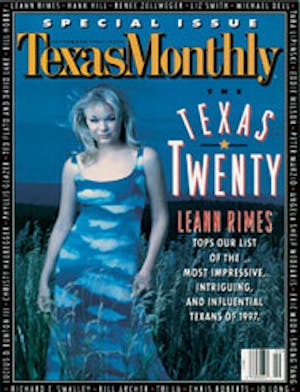IF YOU LIVED IN HOUSTON in the early nineties, maybe you got the chance to see hera frail-looking little girl with tiny legs and a wisp of a body, her brown hair pulled back in a bun, her lips pressed together in concentration. Every morning before school and afterward in the afternoon, she would take to the ice rink at the Houston Galleria, skating the same routine over and over, focusing on the movement of her arms, the smoothness of her turns, and the straightness of her legs. If you stood there and kept watching, you might see her leap. She would lift effortlessly off the ice and then land with hardly a sound, and within seconds she would be back in the air again.
She seemed talented, but who knew where that talent would take her? On rinks in malls all across America, hundreds of other little girls skated five hours a day. They, too, dreamed of stardom. They, too, wanted to win an Olympic medal. But there was only one Tara Lipinski, and you knew after seeing her jump that she alone was destined for greatness.
What no one knew was how soon it would come. In March, at age fourteen, Lipinski became the youngest world champion figure skater of all time, displaying the grace and maturity of someone much older as she landed seven triple jumps in the final round of the competition in Lausanne, Switzerland. Considering that she placed fifteenth the year before, many of the sport’s insiders were wondering what she did to improve so quickly.
“I don’t really know the answer,” Lipinski told me this summer. “All I can say is that I kept practicing.”
Lipinski grew up in New Jersey, where she began roller-skating at age three; by seven she was figure skating competitively. In 1991 she moved to the Houston suburb of Sugar Land with her family after her father, an oil company executive, was transferred there. She was only in Texas full-time for two years before leaving the state to trainfirst in Delaware, then in Michigan. She returned to Sugar Land, however, for at least part of the summer and for holidays, inevitably ending up at the Galleria ice rink for more practice. Though she showed promise, no one thought she would hit her peak until after the year 2000, when she would be in her late teens. But then came the U.S. Nationals this past February, where she upset Michelle Kwan, the defending world champion. And then came the world championships in Switzerland, where she took an early lead and never looked back.
Not surprisingly, Lipinski hasn’t slowed down since winning the title. This spring and summer she traveled the country with other top skaters on the 59-city Campbell’s Soups Tour of World Figure Skating Champions. She was able to spend only one weekend at home, after a stop in Austin. “I played with my dogs, talked with my dad, watched TV, went to bed, and got up the next day and went swimming in our pool,” she said. “Oh, yeah, I also got a manicure and went to see a movie. The whole day was really, really cool. I got to act normal.”
For all her giggly charm, of course, the fact is that Lipinski will never again be a normal teenager. She has her own agent and publicist. She has her own Web site (http://www.taralipinski.com), where she records her thoughts about everything from her upcoming performances to her appearance on David Letterman’s talk show (“Dave’s a really tall person. He must think I’m really small”). And she has the eyes of the world on her. She will go into the 1998 Winter Olympics as the clear favorite: The last ten winners of the women’s world championships have gone on to win gold medals at the next Winter Olympic Games. If she wins, she will certainly become one of the most famous young people in the worldan amazing accomplishment for a girl who just six years ago was a little-known skater practicing her moves at the Galleria.
“I don’t think about being famous or anything like that,” Lipinski said in her guileless manner. “I just want to do my best when I’m on the ice. That’s all that really matters to me, you know?”
But after a pause, she admitted that she occasionally imagines the gold medal being placed around her neck. “That would be pretty neat, you know? Oh, okay, that would be really, really neat.”
- More About:
- Sports
- Sugar Land








